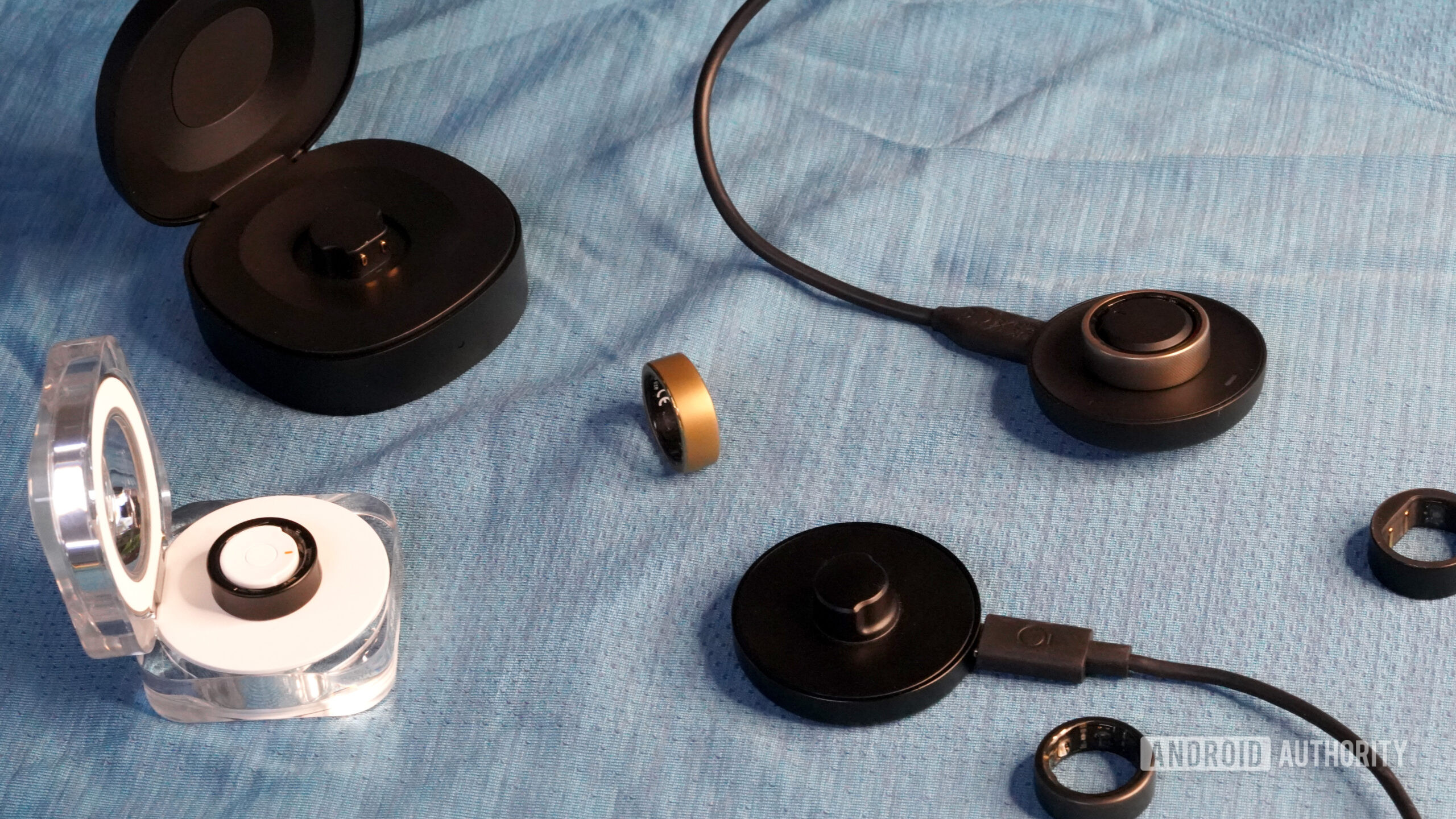
Kaitlyn Cimino / Android Authority
The latest form factor to crash the wearables party is the finger-based smart ring. Smaller than Cracker Jack prizes and predominantly led by the Oura Ring 3, a small army of smart rings has hit shelves (and hands), offering users an alternative way to quietly track their stats. These rings share a variety of core features and, frankly, very similar designs, but a few brands have chosen one significant way to help their mini fitness trackers stand out, and that is smarter charging.
The Samsung Galaxy Ring has it right; Oura has it wrong. Here’s why.
What type of smart ring charger do you prefer?
0 votes
Samsung charges onto the scene
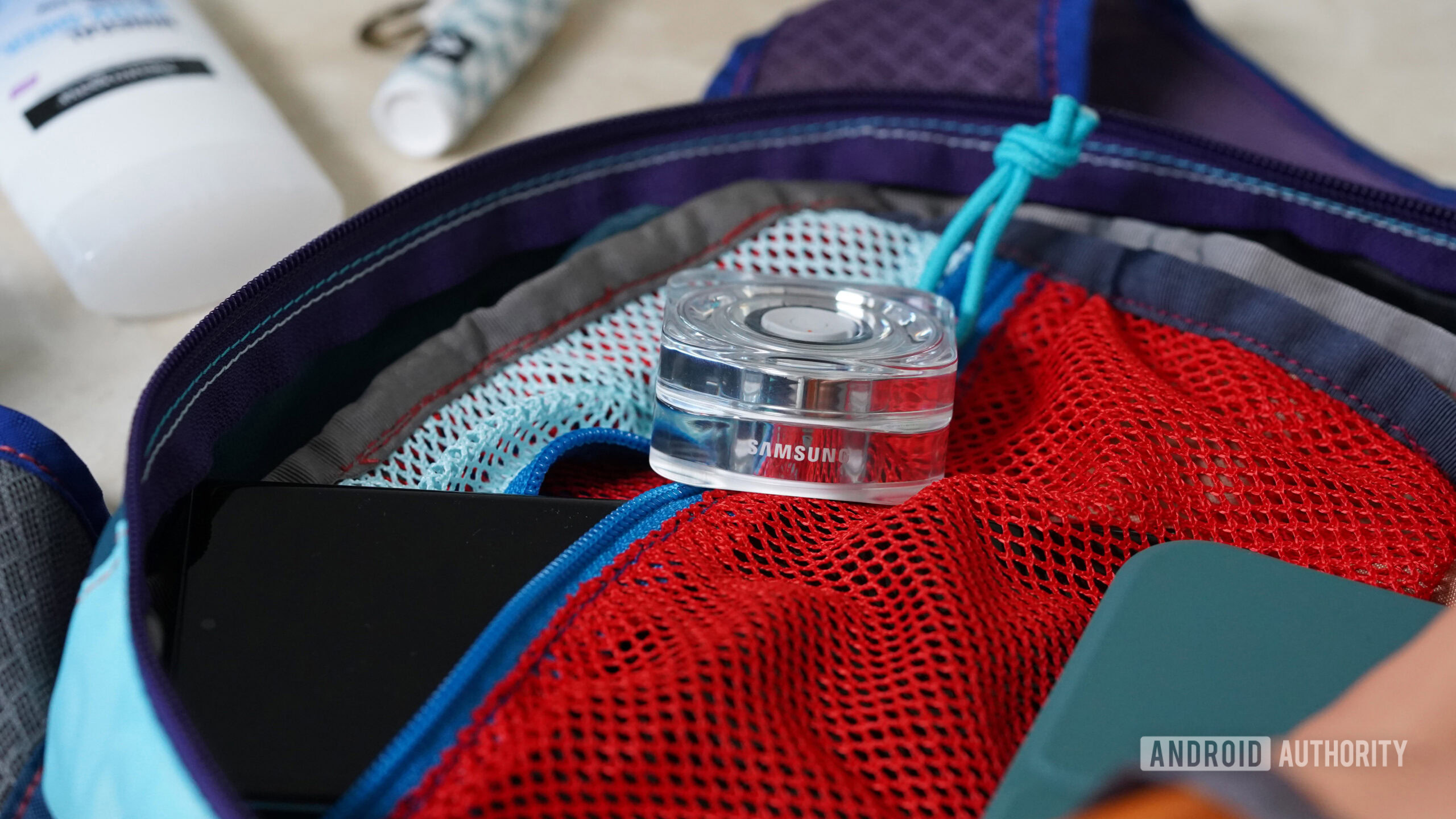
Kaitlyn Cimino / Android Authority
The highly-anticipated Samsung Galaxy Ring made its way to market in July, finally giving Oura a worthy competitor. A fan of the Galaxy Watch series, I was excited to test Samsung’s new addition and see how the product of a wearables powerhouse compared to that of a single-minded smart ring company. After a couple of weeks with both devices literally on hand, my biggest takeaway comparing the Oura vs Samsung Galaxy Ring is that Samsung’s portable charging case is a godsend. All smart ring brands should universally adopt this mechanism.
To be fair, I first encountered a clamshell-style charging case when testing the RingConn smart ring. That ring shipped with a hockey puck-shaped portable case housing a 500mAh battery, which, according to the company, could charge the ring roughly 18 times before needing to recharge itself. The functionality is very similar to true wireless earbuds, like Apple’s AirPods and Google’s Pixel Buds, with their rechargeable charging cases. This concept applied to a smart ring immediately won me over, as I’m constantly impressed by anything that streamlines packing and travel.
Unlike pucks, charging cases pack a built-in battery to power up your smart ring on the go.
When early image leaks of the Samsung Galaxy Ring showed a similar charging case design, I was thrilled. And when I got my hands on the company’s translucent ring box of a charger, it was like Samsung was asking for my hand in marriage. Considering I’m pretty sure my partner simply fished out a precariously pocketed, unboxed ring before proposing, I never realized how much packaging could win me over. Samsung’s ghostly design with its built-in battery is attractive, portable, and highly convenient. Comparatively, puck or cradle-style chargers are flawed and limited.
Rocking the Oura cradle
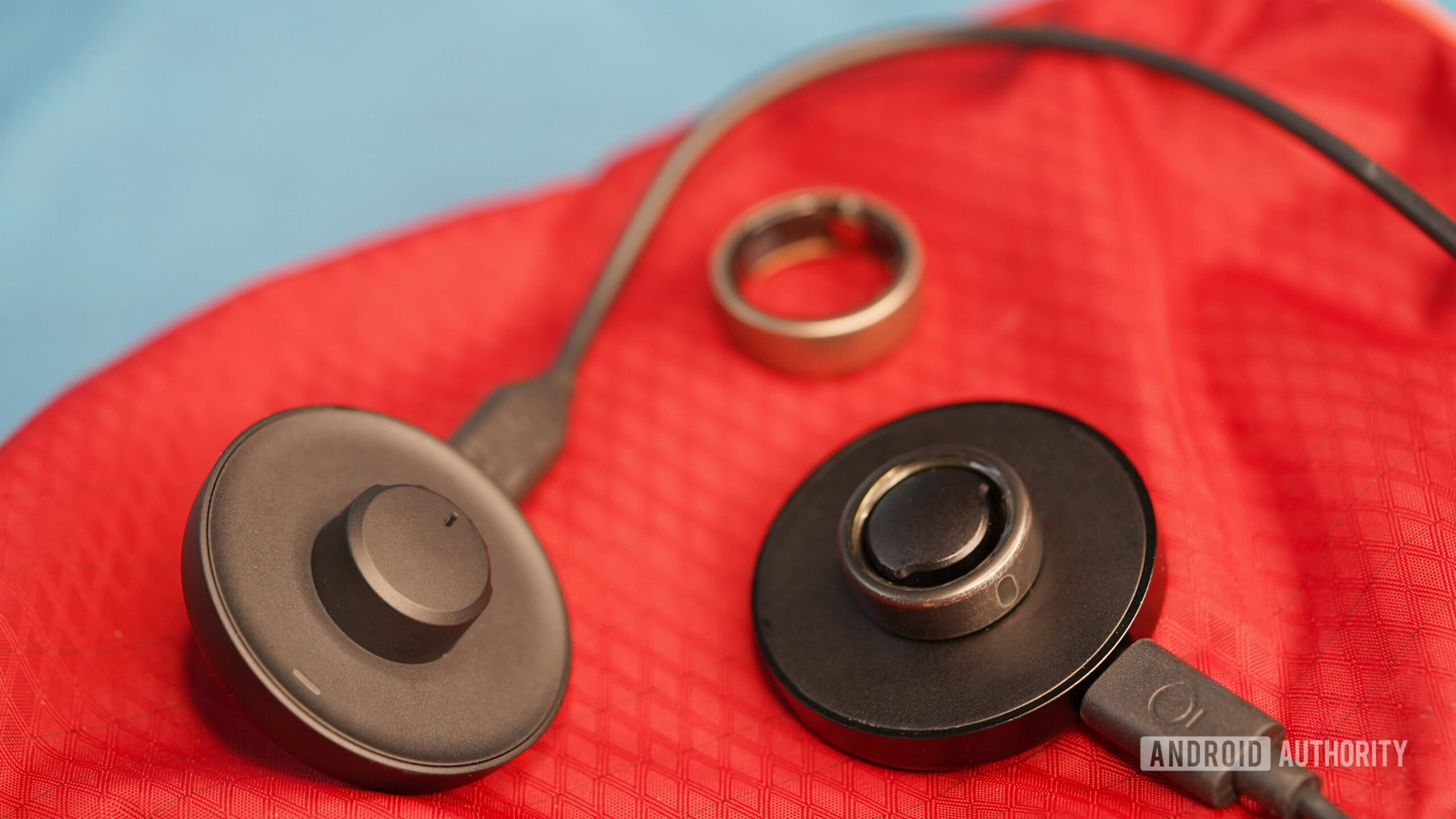
Kaitlyn Cimino / Android Authority
The “traditional” charger design for a smart ring has always been a puck. This typically includes a flat portion with an area larger than the ring itself and an elevated post for the ring to set around. Because of their sensors, smart rings typically need to be perfectly aligned on their chargers and often only fit in the proper orientation. The method works, but it’s cumbersome. If you tend to tangle your cables and the cradle doesn’t naturally lay flat, it can tip over and dislodge your ring. More than once I’ve returned to my own smart ring only to find it hadn’t been charging as I thought.
Pucks need to be plugged in and laid flat to charge as expected.
Charging cases, on the other hand, offer a tight enclosure that keeps the smart ring in place, no matter how you bump or move it. More importantly, charging cases pack built-in batteries so you can power up your ring without an outlet nearby and then recharge the case when it’s convenient. This means stowing the charger in a backpack for a long trip without worrying about cables or a power source. You could even charge your ring mid-flight, knowing you’re probably not racking up many stats immobilized by your seatbelt. When you’re not on the go, charging cases also just look neater on a desk or bedside table than a loose puck.
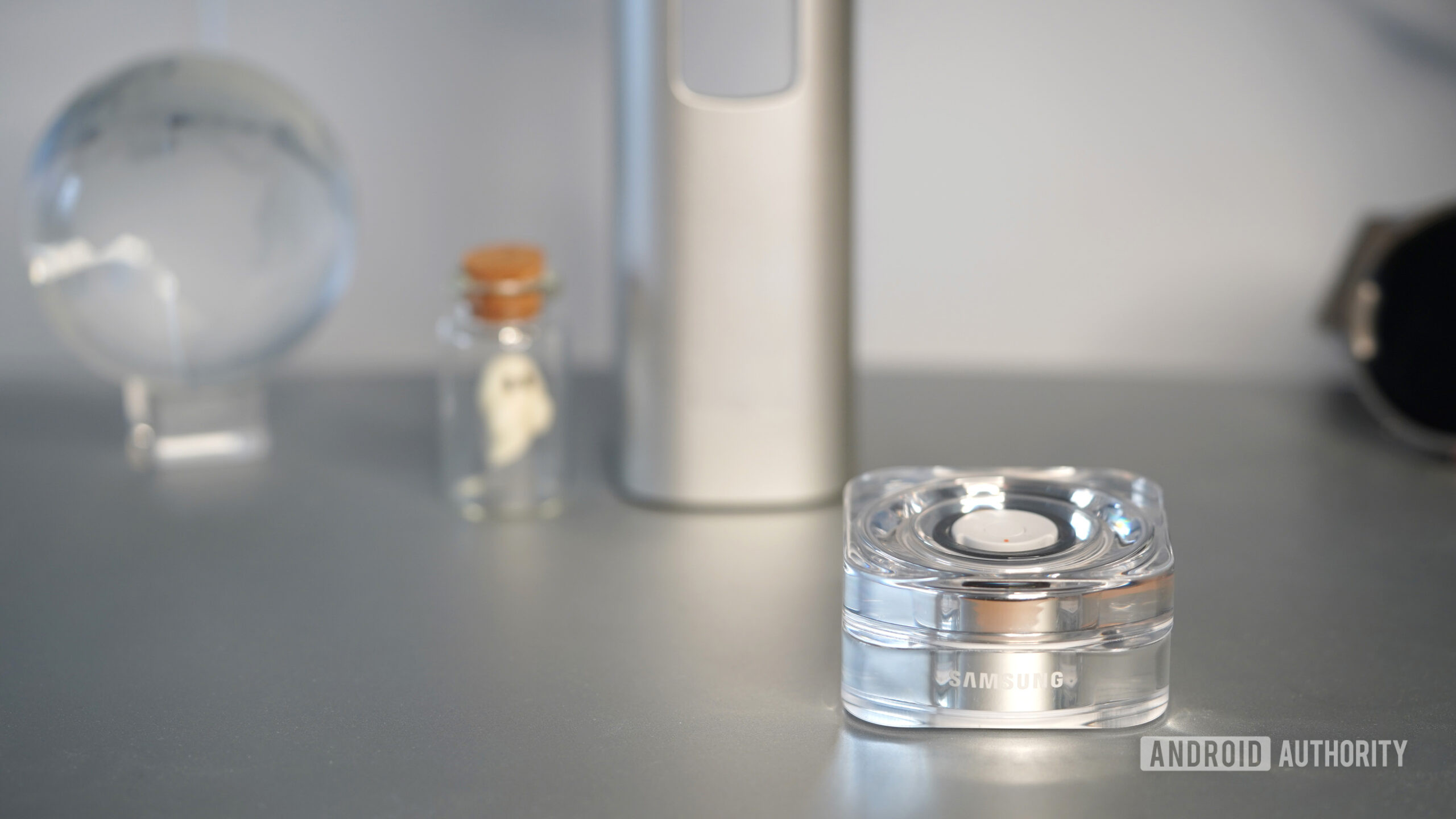
Kaitlyn Cimino / Android Authority
A clutter-phobic human by nature, I love that the Galaxy Ring case looks like a curious little tchotchke on my desk. Cradle-style chargers, on the other hand, snake their way onto surfaces with unruly cables and boring aesthetics.
I fully appreciate that the smart ring market is still in a somewhat fledgling state. And, to be honest, I am excited about its future. I anticipate we will continue to see evolution and innovation that will only make this form factor more attractive going forward. For a long time, I was satisfied with Oura’s effort. Now that competition has rocked the boat, I hope Oura and other brands in the race continue to keep up.
I am excited to see innovation continue to hit the smart ring arena.
A smart ring offers several benefits over other wearables, including subtlety, simplification, comfortable sleep tracking, and distraction-free tracking. To me, though, the biggest strength of a good smart ring is its nearly week-long battery life. A charging apparatus that adds even more convenience to battery maintenance is another huge benefit to the user experience, and I hope it becomes the norm.

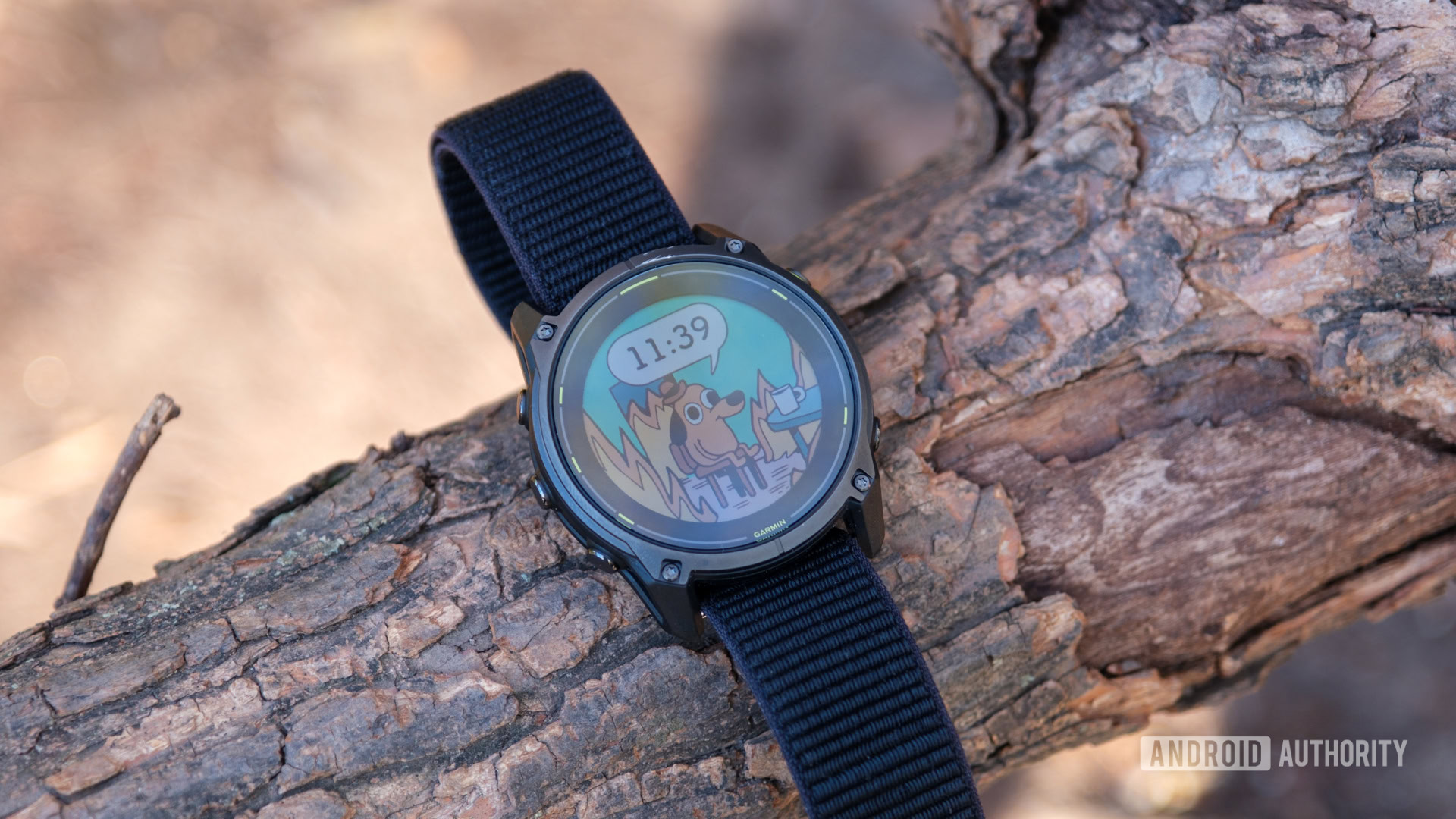
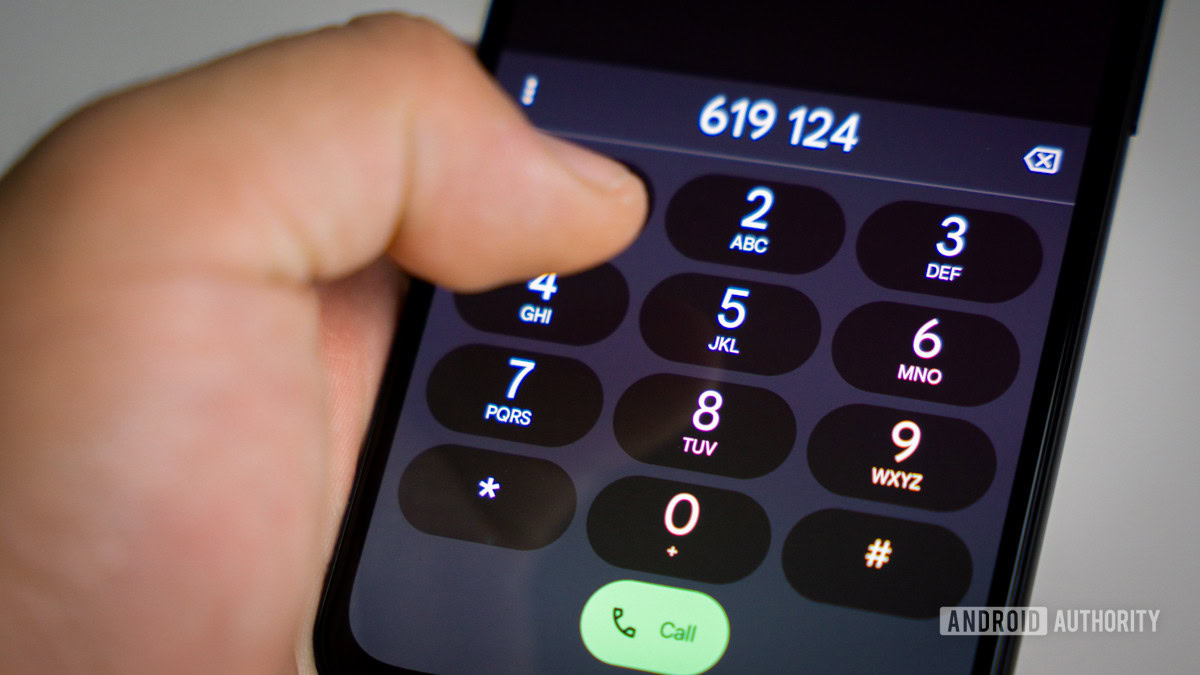




 English (US) ·
English (US) ·